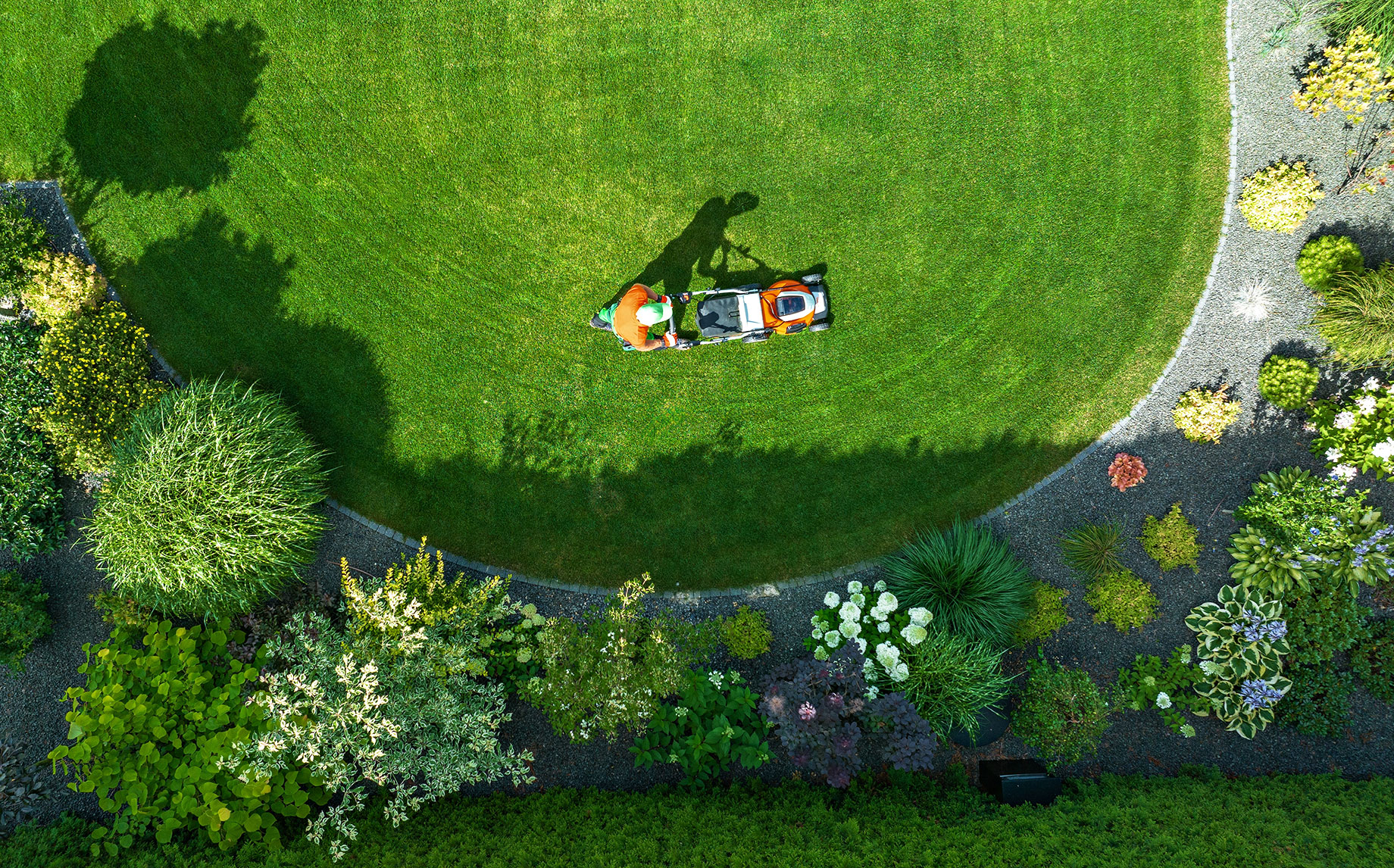
There’s something about a healthy, vibrant lawn that instantly boosts a home’s curb appeal—especially in Massachusetts. It’s the first thing visitors notice and can even raise your property value. But creating that perfect patch of green isn’t just about mowing once a week and hoping for the best.
In reality, many homeowners unintentionally sabotage their own lawns through simple, avoidable mistakes. These missteps can waste your time, drain your wallet, and turn what should be a lush oasis into a patchy, stressed-out mess.
The good news? Most of these common lawn care mistakes are easy to identify and fix. Whether you’re just starting out with lawn maintenance or looking to fine-tune your approach, understanding where things go wrong is the first step toward a yard you’ll be proud of. Below, we dive into the five most frequent lawn care errors—and exactly how to correct them for Massachusetts homeowners.
1. Overwatering (Yes, That’s a Thing)
When it comes to watering, many people assume more is better. After all, plants need water to grow, right? While that’s true, lawns are surprisingly sensitive to overwatering. Excess moisture can suffocate the grass roots, making it hard for them to “breathe.” It also creates a perfect breeding ground for lawn diseases like mold, mildew, and fungal infections—common issues in humid Massachusetts summers.
Fix it: Rather than watering daily, aim to water deeply just 2 to 3 times per week. This encourages the roots to grow deeper, making your grass more drought-tolerant in the long run. The best time to water is early in the morning—ideally before 9 a.m.—so your lawn can absorb the moisture before the heat of the day causes evaporation. Avoid watering at night, as lingering moisture can increase the risk of disease.
2. Cutting the Grass Too Short
We get it—it’s tempting to give the lawn a super short trim so you don’t have to mow again so soon. But “scalping” the lawn actually weakens the grass significantly. Short grass blades mean less surface area for photosynthesis, which is how your grass feeds itself. Additionally, short lawns expose soil to direct sunlight, which encourages weeds to sprout and leads to soil drying out faster. This is especially true in Massachusetts during dry summer spells or windy early spring days.
Fix it: Stick to the one-third rule: never remove more than one-third of the grass blade in a single mowing session. This helps keep your lawn healthy, thick, and resilient. Also, keep your mower blades sharp. Dull blades tear the grass rather than cutting it cleanly, which stresses the plant and can leave it more prone to disease. Be sure to adjust your mower height based on the season and the specific grass type you’re growing—cool-season grasses are common in Massachusetts.
3. Ignoring Soil Health
It’s easy to focus on what you can see above ground—but the secret to a thriving lawn lies in what’s happening below the surface. Poor soil health, including compaction and nutrient deficiencies, can drastically limit the effectiveness of all your lawn care efforts. Even with perfect watering and mowing, unhealthy soil can stunt grass growth and leave you wondering what went wrong. Many Massachusetts lawns have compacted or rocky soil, especially in older neighborhoods or heavily used yards.
Fix it: Start by aerating your lawn once a year—usually in the fall or spring. Aeration involves removing small plugs of soil, allowing air, water, and nutrients to penetrate more deeply. It’s essential for reducing compaction and improving root development. Additionally, consider getting a professional soil test. This will give you a clear idea of what nutrients your lawn may be lacking so you can fertilize properly and avoid wasting money on unnecessary products.
4. Using the Wrong Grass for Your Region
Not all grass is created equal, and choosing the wrong type for your specific climate and yard conditions can set you up for frustration. For example, trying to grow cool-season grasses in a hot, sunny yard will likely result in constant brown patches and poor growth. This is especially important in Massachusetts, where weather can swing from cool and wet to hot and dry in a matter of weeks.
Fix it: Do a little research to find out which grass types are best suited for your area’s climate, soil type, and sunlight exposure. In Massachusetts, cool-season grasses like fescues, Kentucky bluegrass, and perennial ryegrass typically do well. Some grasses thrive in shade, while others love full sun. If you’re unsure, talk to a local garden center or lawn care expert. Getting the right grass from the start makes a huge difference in the long-term success of your lawn. A tailored approach simplifies your maintenance routine and ensures your yard looks its best all season long.
5. Skipping Regular Maintenance
Let’s face it—life gets busy. It’s easy to let lawn care slip to the bottom of the to-do list. But skipping the small stuff, like seasonal fertilizing, weed control, or cleaning up fallen leaves and debris, adds up fast. Over time, this neglect can lead to a lawn that looks worn-out, patchy, and full of weeds. With Massachusetts’s four-season climate, proper timing is everything—from spring prep to fall clean-up.
Fix it: The key is consistency. Create a simple seasonal lawn care schedule that includes fertilizing, weed prevention, mowing, watering, and general clean-up. Stick to it as best you can. And if lawn care just isn’t your thing—or you’re tired of the trial and error—it might be time to get professional help. If you’re short on time or unsure what your lawn needs, consider hiring a reliable lawn care service in Massachusetts to take the guesswork out of it.
Final Thoughts
Lawn care doesn’t have to be overly complicated. By avoiding these common pitfalls and adopting a proactive, educated approach tailored for Massachusetts conditions, you can achieve a lush, green lawn that turns heads—and stays that way.
Whether you enjoy getting your hands dirty on the weekends or would rather leave it to the professionals, one thing’s certain: good lawn care starts with good habits. And when you’re ready to call in the pros, don’t just settle—choose experts who know your region, your grass, and exactly what your lawn needs.
